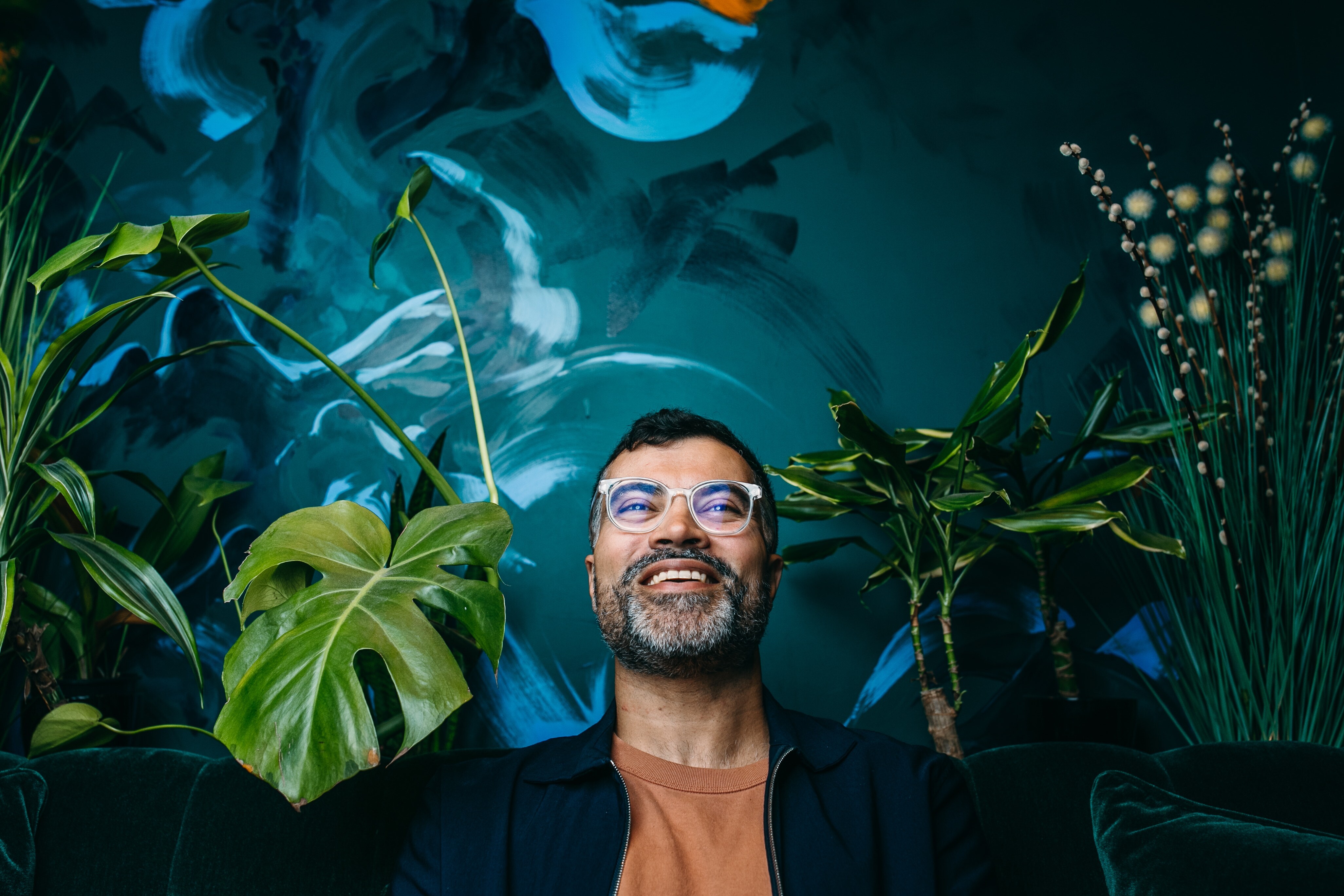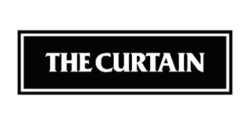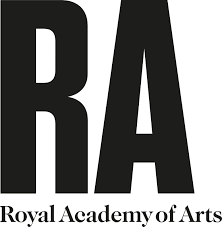Curator Story
Brian d'Souza
Specialist in: world, house, nu-jazz, electronica and ambient
Founder and managing director of Open Ear, Brian is an renowned international DJ, music producer, radio host and record label owner, with releases on the likes of Gilles Peterson's Brownswood, Kompakt Records, Permanent Vacation and many more. Brian has an academic background in music psychology with an MA in psychology and MSc in sound design. His experience in both music and psychology provides the two cornerstones of Open Ear - the science and the art of music for businesses.
"I love the ways music breaks down cultural and language barriers, and enriches our lives in many different ways. As a DJ and radio host, I'm dedicated to discovering and sharing music with as many people as possible. Open Ear helps me take this to another level."
An interview with Brian
Let’s start from the beginning - please introduce yourself and give us a background to your life in music...
I’m Brian d’Souza. I wear many hats in the music industry. I’m founder and managing director of Open Ear, also working as part of the playlist curation team. This acts as my main 9-5 job but outside of that I produce music and DJ using the name Auntie Flo (in tribute to my favourite Goan Auntie). I’ve released music on a variety of labels including recently on Gilles Petersons Brownswood and Moscoman's Disco Halal. I regularly DJ internationally, recently completing tours in the US, India, Japan/Korea, Australia/New Zealand, east Africa and extensively in Europe. I hosted a monthly radio show on Worldwide FM called Radio Highlife and run a record label also called Highlife. My main motivation is to use music to open doors, breaking down culture and language barriers to connect with people.
Music has fascinated me from a young age, I remember it being a gateway into many cultures and subcultures from west coast hip hop to britpop, which was invaluable in my teenage years. At university, I started to study the effects of music during my degree in psychology and latterly in a Masters in Sound Design. I’m hugely interested in how our sense of hearing works and how we can use to sound to enhance our environment and state of mind. I’m utterly devoted to music and sound, and my dedication to understanding all its many aspects will no doubt keep me going for the rest of my life.
Do you remember what music inspired you at an early age? And perhaps a few tracks that inspired you to start a career in music?
My earliest memory of listening to music is at a friend's party when I was around eight years old. All the other kids were playing pin the tail on the donkey and other kids games but me and my crew spent the whole afternoon in a room dancing around to Michael Jackson's ‘Bad’. That was the first cassette I owned and although there are obviously some serious allegations around his behaviour, his music remains an inspiration.
As a teenager, I remember listening to John Peel on Radio 1. I would write down the tracks he played and then spend my pocket money at my local record store (Fopp in Glasgow) trying to find them. I loved how the music was so different, both compared to the mainstream and also compared to the other tracks he would play. I remember I wrote down a track by post-rock band To Rococo Rot, a mix by hard techno DJ Dave Clarke, and the UK hip hop track ‘The Sleepless’ by Red Snapper all on one list.
Is there one area of music you specialise in i.e. genre or scene that you are particularly close to?
In the last eight years since I’ve been touring as Auntie Flo, I’ve been closely associated with a new type of ‘world music’ (for want of a better term): that is, music that is informed by different global scenes and cross-pollinated enough to create something new. I’m inspired by Jon Hassell’s concept of ‘4th World music’ – fusing traditional instrumentation with the modern/electronic production. For Open Ear, I cover a range of different styles, mainly around electronic and house but dipping into soul, jazz, beats and much more.

What are your favourite places, sources, sites, radio shows or people to discover new music?
Having been DJ'ing for over 15 years, I’ve amassed a huge variety of places to discover music. My favourite is visiting different cities and digging in the local record shop. I always start with the ‘local’ section and ask the staff for recommendations, they often pull out stuff that I would never have found – and that demonstrates the power of curation!
Closer to home, I regularly visit record shops – Phonica, Sounds of The Universe, and Honest Jon's are all great. I buy a lot online too – Bandcamp is unbelievable, I have a huge soft spot for Boomkat and there’s Juno for everything else. Being part of Worldwide FM was brilliant and I love the shows on there even if I don’t get a chance to listen. We also switch on Netil Radio, Rinse, NTS and others in the office. London is blessed with a dizzying array of radio stations playing incredible content.
Talk to us about your approach to music playlist curation, do you have some key do’s and dont's?
Playlist curation is about two things: 1. Knowledge of music and 2. Knowledge of the listener/audience.
As our playlists are mostly listened to without the social/cultural context (unadulterated), you really have to listen to the song and strip away any hype and or attached marketing. It’s important to look out for elements of the production that might be annoying in a certain context - a sax solo, long intros, or breakdowns can really interrupt the flow of a playlist. You also need to have knowledge of how and where that song sits in the chronology of music. This is because our audiences are becoming more switched on, and any artist or song that might have negative connotations will be picked up on. I look at playlisting like a very long DJ set I might have to do. Join the dots between the songs, get a good balance of familiar and unfamiliar, of high and low energies, of easy on the ear and slightly more challenging – it’s all about balance.
How is playlisting for brands different than playlisting at home or for personal listening on-the-go?
Vastly different! Playlists we make for brands sometimes need to play for 24 hours a day, seven days a week and last all year, so you need a huge amount of music that limits repetition. I might make a 30 track playlist at home and that is enough to satisfy, but a brand playlist would be at least ten times the size. This means the scope and breadth of the playlist must be much bigger but still retain the consistenty that the brand requires.
What are your thoughts on computer algorithms shaping the future of music curation?
Human beings are only beginning to understand what music really is and how powerfully it influences us. Not just socially, but also from a health and wellbeing perspective. For this reason, it seems daft to try to think that we could programme a computer to understand this for us. Good taste is something learned over years, it’s something that is always framed by a social or cultural context and something that is always in the eye of the beholder. The complexity surrounding all of the above makes it impossible for a computer to work out.
Tell us more about the client(s) you’ve worked with using the Open Ear platform. How did you meet the client’s expectations?
I love getting to know our clients and enjoy the challenge of interpreting their tastes and turning their business/brand story into a music playlist and strategy. Sometimes, like in the case of Red Rooster, you can achieve this by working directly with the proprietor. In this case it was a joy to work directly with Marcus Samuelsson, to understand his personal and business story and then turn that into a playlist encompassing Swedish and Ehtiopian music as a nod to his family heritage, Latin/Cuban as a nod to his travels, hip hop, soul and funk for the Red Rooster Harlem heritage and British trip hop, jazz and grime because of the restaurant's British base.



